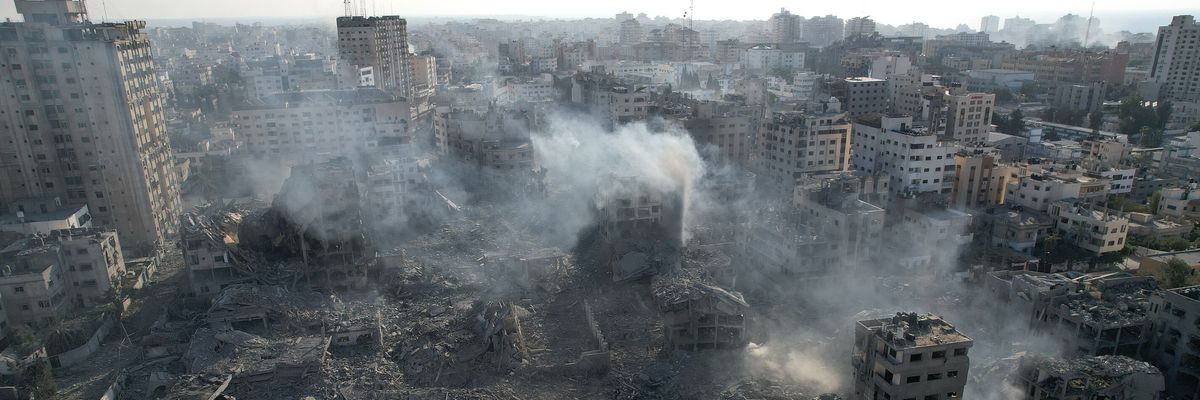Two centuries ago, Percy Shelley wrote that “poets are the unacknowledged legislators of the world.” Yet elite power has routinely vetoed their best measures. Still, the ability of poetry to inspire and nurture is precious, including when governments are on protracted killing sprees.
But sometimes, conscience requires the withdrawal of poetic talent instead of helping to normalize the unconscionable. That’s what happened this week when the New York Times Magazine lost its poetry editor.
Anne Boyer, a poet and essayist who won the Pulitzer Prize in 2020, suddenly quit and released a powerful resignation letter. She denounced “the Israeli state’s U.S.-backed war against the people of Gaza”—accurately calling it “an ongoing war against the people of Palestine, people who have resisted through decades of occupation, forced dislocation, deprivation, surveillance, siege, imprisonment, and torture.”
A few words from a poet might chip away at the frozen blocks that support illegitimate power. And we might gain strength from the clarity that a few lines can bring.
Boyer’s resignation was not only a protest against the continuous killing in Gaza. She also deftly described how the New York Times, like U.S. news media overall, can flatten mass murder into monotone narratives: “I can’t write about poetry amidst the ‘reasonable’ tones of those who aim to acclimatize us to this unreasonable suffering. No more ghoulish euphemisms. No more verbally sanitized hellscapes. No more warmongering lies.”
In Gaza, more than 11,000 civilians have been killed since early October. Children are perishing at an average rate of 10 deaths per hour. The ongoing slaughter by Israeli forces—supported by huge military aid from the United States—follows Hamas’s atrocities on Oct. 7 in Israel, where the latest estimate of the death toll is 1,200 including at least 846 civilians in addition to some 200 hostages.
But numbers don’t get us very far in human terms. And news accounts have limited capacities to connect with real emotions.
That’s where poetry can go far beyond where journalism fails. A few words from a poet might chip away at the frozen blocks that support illegitimate power. And we might gain strength from the clarity that a few lines can bring.
Stanley Kunitz wrote:
In a murderous time
the heart breaks and breaks
and lives by breaking.
It is necessary to go
through dark and deeper dark
and not to turn.
“In a dark time,” Theodore Roethke wrote, “the eye begins to see.”
Bob Dylan wrote lines that could now be heard as addressing Prime Minister Benjamin Netanyahu and President Biden:
You fasten all the triggers
For the others to fire
Then you sit back and watch
When the death count gets higher
You hide in your mansion
While the young people's blood
Flows out of their bodies
And is buried in the mud
June Jordan wrote:
I was born a Black woman
and now
I am become a Palestinian
against the relentless laughter of evil
there is less and less living room
and where are my loved ones?
In the United States, far away from the carnage, viewers and listeners and readers can easily prefer not to truly see that “their” government is helping Israel to keep killing thousands upon thousands of Palestinian children and other civilians. “I call it cruel and maybe the root of all cruelty / to know what occurs but not recognize the fact,” a poem by William Stafford says.
From Pink Floyd:
Don’t accept that what’s happening
Is just a case of others’ suffering
Or you’ll find that you’re joining in
The turning away
. . . .
Just a world that we all must share
It’s not enough just to stand and stare
Is it only a dream that there’ll be
No more turning away?
Franz Kafka wrote: “You can hold yourself back from the sufferings of the world, that is something you are free to do and it accords with your nature, but perhaps this very holding back is the one suffering you could avoid.”

